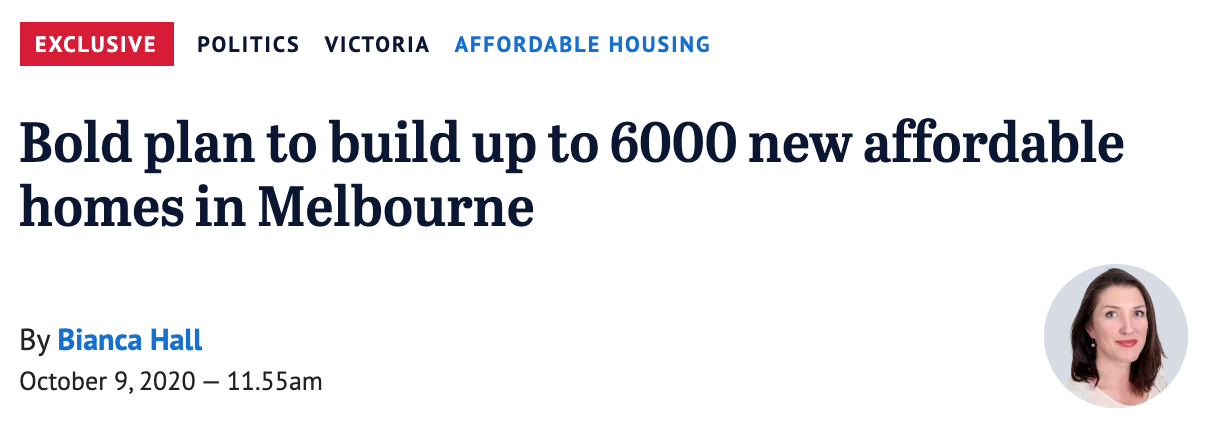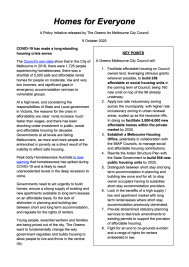Young people, families and essential workers are being priced out of the central city. Our homelessness and housing affordability crisis is out of control.
Council’s own data show that in 2019, there were 1,725 people experiencing homelessness, a shortfall of 5,500 safe and affordable rental homes and significant gaps in emergency accommodation.
COVID has only made this worse. Homelessness Australia warns of the human cost of the recession to come.
Clearly property development and construction will play a vital role in Melbourne’s economic recovery, but we also need to ask ourselves: what sort of city are we building? Is it affordable and liveable? Will new buildings add to the quality of our city? And will these new buildings be designed well, with energy and cost efficiency over the long term?
It’s time Government leads the way and builds homes again.
Our Homes For Everyone policy proposes the construction of 256 affordable units on Council owned land in the next term of Council. It proposes the establishment of a Melbourne Housing Office to manage affordable housing contributions. And it proposes to amend the final version of the Arden Structure Plan with the State Government to include the construction of 938 public housing units by 2025, when the Arden Station completes construction.
But it is also time for the private sector to facilitate affordability in the housing market.
We know this is good economics. We propose a low rate of inclusionary zoning across Greater Melbourne, and a second higher rate in urban renewal areas in the City of Melbourne. We would also like to see those rates come in at 5% and 10% in 2021 and rise incrementally to 10% and 20% by 2031.
This is gradual, allowing the affordable housing market to mature, and incentivising owners to develop land at the start of the recession at the lower rate.
And this is nothing compared to the London standard of 50%, and it facilitates viable development.
Read more about our plan for a more affordable city, and for more affordable housing:
And our full policy initiative:


